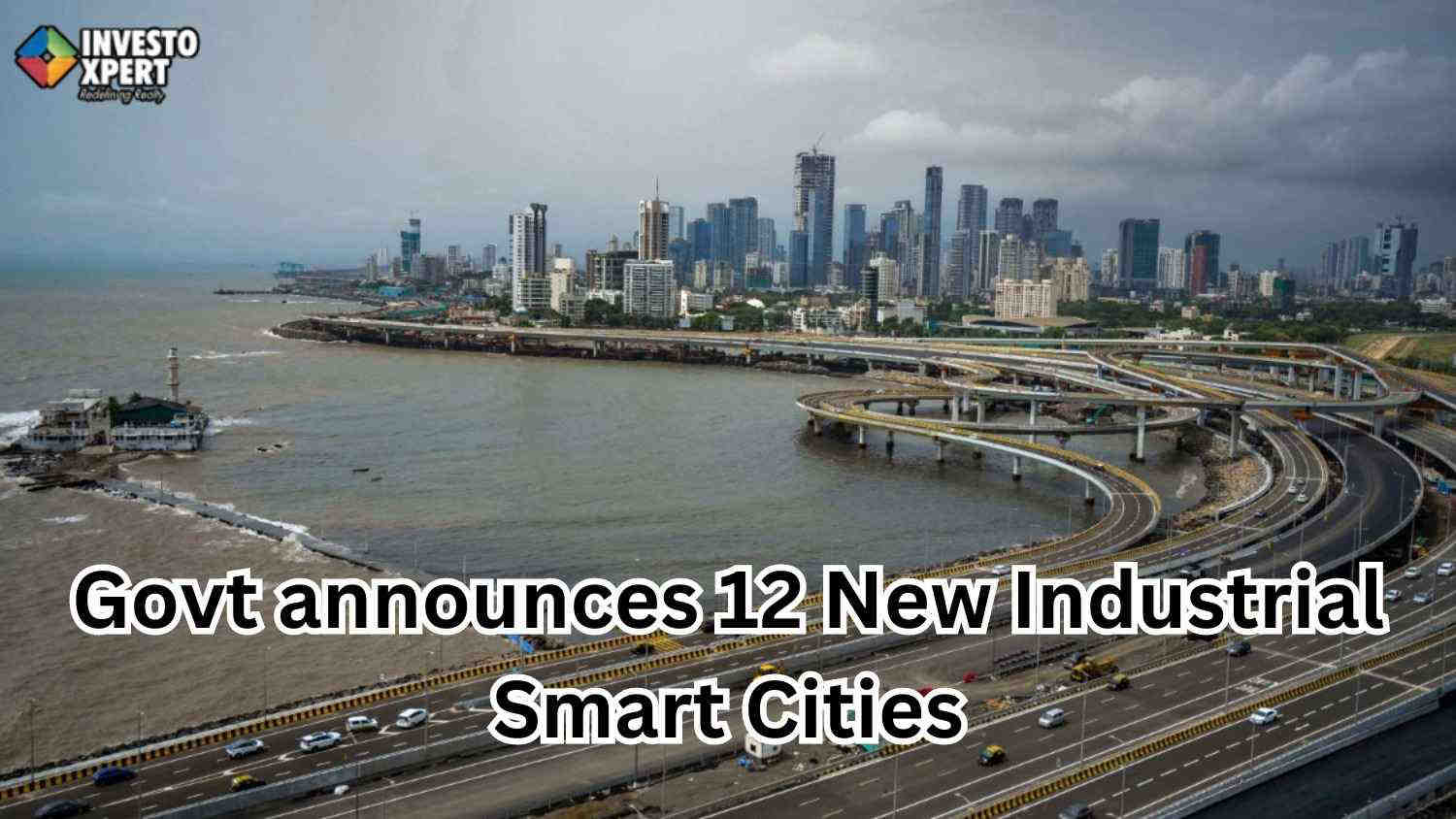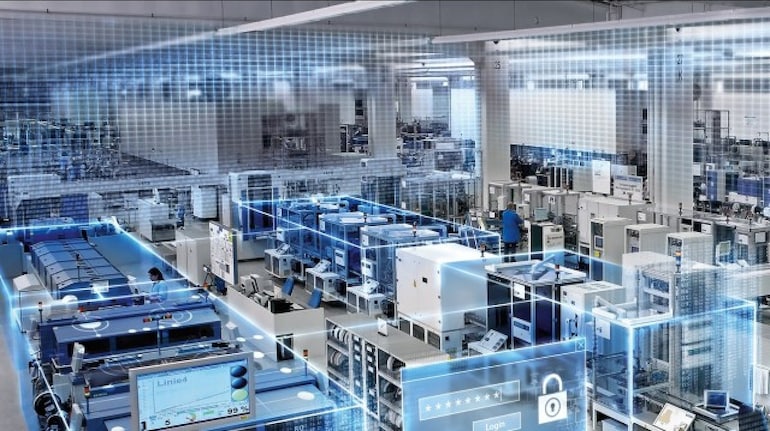Work on 12 Industrial Smart Cities will begin this year
By Investoxpert | 27 Sep 2024 | Guide

As per National Industrial Corridor Development Corporation, four more projects will be finished by the end of 2025.
Following the approval of 12 industrial smart cities, work on four more will probably be finished by the end of the following year, according to Rajat Kumar Saini, CEO and Managing Director of the National Industrial Corridor Development Corporation (NICDC).
The National Industrial Corridor Development Programme, which spans six major industrial corridors in ten states and calls for the construction of twelve industrial smart cities, was recently authorized by the Union Cabinet, led by the Prime Minister.
The cities in Uttarakhand, Punjab, Maharashtra, Kerala, property in Noida at Uttar Pradesh, Bihar, Telangana, Andhra Pradesh, and Rajasthan have been selected for the industrial projects.
What Is An Industrial Smart City?
An industrial smart city is a metropolitan area that combines data analytics and cutting-edge technology to improve industrial operations' efficiency and encourage sustainable growth. The goals of these "smart industrial cities" are to increase employment, encourage domestic manufacturing, and draw in foreign investment.
Objectives:
- By offering investors ready-to-allot land, India's new industrial city development seeks to enhance the nation's standing in international value chains.
- It attempts to incorporate cutting-edge urban ideas such as "walk-to-work" and "plug-and-play."
- Plug-and-play industrial parks provide ready-to-use infrastructure so that companies can begin operating right away.
- An urban planning technique known as "walk-to-work" promotes individuals to live at the residential properties for sale close to their places of employment in order to cut down on driving and increase walking.
Road Map for Development:
- The National Industrial Corridor Development Programme (NICDP) would oversee the development of the cities.
- The goal of NICDP is to create cutting-edge industrial cities that can rival the best places in the world for investment and industry.
- By encouraging investments from both major anchor industries and Micro, Small, and Medium-Sized Enterprises (MSMEs), it is intended to promote a thriving industrial environment.
- The Delhi Mumbai Industrial Corridor was approved in 2007 and was the first industrial corridor.
- The National Industrial Corridor Development and Implementation Trust (NICDIT) and the National Industrial Corridor Development Corporation Limited (NICDC) are in charge of carrying out the program.
- These industrial hubs will act as self-sufficient urban environments by integrating residential and commercial projects.
- For the purpose of promoting these projects, the government intends to collaborate with Invest India, the country's national Investment Promotion and Facilitation Agency.
- In order to implement the parks, a Special Purpose Vehicle (SPV) will also be established; a three-year completion timeframe is contingent upon state participation.

What are the Key Features of the Approved Industrial Smart Cities?
Compliant with PM Gati-Shakti National Master Plan and National Economic Goals:
- The government's objective of reaching USD 2 trillion in exports by 2030 is in line with the development of these smart cities.
- The projects will integrate multi-modal connectivity infrastructure to facilitate the smooth movement of people, commodities, and services in line with the PM's GatiShakti National Master Plan.
- Supply chains across the country must be streamlined, and improved logistical efficiency depends on this infrastructure.
The cities will improve connectivity and industrial growth by being a part of the Golden Quadrilateral's "necklace of industrial cities."
What are the Significance?
The goal of these projects is to draw in foreign direct investment (FDI) from nations like Switzerland and Singapore.
With a potential for investment of Rs 1.5 lakh crore, these cities are predicted to produce up to 30 lakh indirect jobs in addition to about 10 lakh direct jobs.
In order to lessen their negative effects on the environment, the cities built under the NICDP will integrate green technologies and ICT-enabled utilities. Additionally, they will offer ready-to-allot land parcels to draw in both foreign and domestic investors and enhance India's standing in international value chains.
What Are The Challenges Associated With Industrial Smart Cities Development?
- Technological Integration and Infrastructure: Modernizing antiquated urban industrial infrastructure to facilitate Internet of Things devices, fast internet, and data centers is expensive and logistically difficult, particularly in older towns.
- Data privacy and security: Strong security mechanisms and ongoing monitoring are needed to ensure that the enormous volumes of data gathered from smart devices are protected against intrusions.
- Funding and Investment: It can be difficult to obtain significant financial support from public or private sources; stakeholders must be persuaded of the project's long-term advantages and higher return on investments .
- Public Acceptance and Awareness: The success of industrial smart city programs depends on effectively addressing individuals' concerns about privacy, job loss from automation, and lifestyle changes through education and communication.
- Governance and Policy Issues: Navigating changes in local laws, regulations, and policies is time-consuming and politically sensitive, complicating the implementation of smart city initiatives.
- Regulatory Reforms: To increase efficiency, lessen corporate costs, and foster investor trust, streamline and digitize administrative procedures, harmonize laws across government levels, and increase decision-making transparency.
- Effective Land Acquisition: To expedite the process, establish land banks, guarantee equitable recompense to reduce conflicts, and employ creative techniques like land pooling.
- Sustainable Development: To support these endeavors, it is critical to carry out exhaustive environmental evaluations, encourage sustainable economic practices, and make the required sustainable buildings investments.
- Workforce Training and talent Development: Establishing vocational training centers, working with industry to create customized training programs, and offering incentives to companies that participate in employee development are all critical steps toward addressing the talent shortages in industrial parks.
- Public-Private Partnerships: Promoting public-private partnerships that provide transparent and accountable governance while fairly sharing risks and profits is crucial to maximizing the benefits of industrial smart city development.
Conclusion
For getting more information on real estate trends, contact InvestoXpert now:
Call us at +919880083870 or mail us at [email protected].
Read More: 2 BHK in Noida Extension
Read More: 3 BHK in Noida Extension
Read More: 4 BHK in Noida Extension
Read More: 2 BHK in Greater Noida West
Read More: 3 BHK in Greater Noida West
Read More: 4 BHK in Greater Noida West
Read More: 2 BHK in Noida Expressway
Read More: 4 BHK in Noida Expressway
Read More: Godrej Properties Noida
Lets Get Your Dream Home
I authorize InvestoXpert and its representatives to Call, SMS, Email or WhatsApp me about its products and offers. This consent overrides any registration for DNC / NDNC.